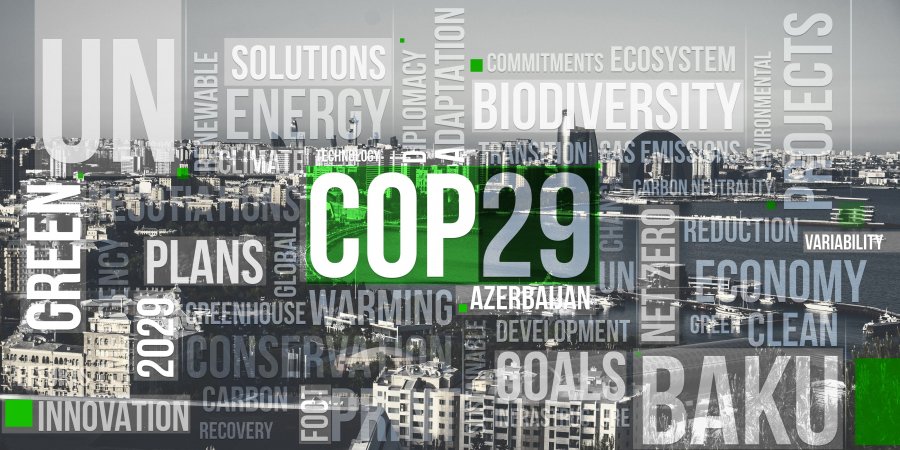The BASIC group of countries – Brazil, South Africa, India, and China – has put an item on the COP29 agenda in Baku regarding “unilateral restrictive trade measures” applied to them by developed countries, which prevent them from fulfilling their climate commitments.
This is reported by the Climate Home portal.
They consider such actions to be protectionism and want to officially discuss it at the COP29 climate summit. The publication notes that such a “struggle for the agenda” could disrupt climate negotiations.
Criticism of trade measures of developed countries
In their submission to the UN, the BASIC countries say that trade restrictions by developed countries “under the guise of climate goals constitute a systemic problem with a disproportionate impact on developing countries.”
“Such measures increase the cost of global climate action, impede developing countries' efforts to meet their climate commitments and ambitions, undermine the basis of multilateral cooperation, and contradict the UN climate agreements,” they add in their statement.
Aaron Cosby, a trade expert at the International Institute for Sustainable Development (IISD), said the BASIC proposal is “explosive”. He added that “the potential for these issues to undermine progress at this COP is very real.”
Experts say that such a position of the group is likely to meet with fierce resistance from the European Union and the United States. They will not agree to the inclusion of a BASIC item on the general agenda.
Stanislav Zinchenko, Chairman of the EBA Committee on Industrial Ecology and Sustainable Development, in his commentary on this issue, pointed out two main positions that cause skepticism about COP29. The first is the insufficient composition and low level of representation:
"COP29 is a total failure, because there are no leaders of France, Germany, the USA and many others."
The second is a complete failure with specific financial funds, commitments and instruments that should have been adopted and implemented.
What's the point of CBAM
Although the submission does not mention specific policies, BASIC criticizes the EU's plan for a cross-border carbon adjustment mechanism (CBAM) – essentially a carbon tax on imports – as well as certain provisions contained in the US Inflation Reduction Act (IRA).
This is not the first time that BASIC countries have opposed CBAM – they put a similar proposal on the agenda in the run-up to COP28. But led by the group's then-chair, Brazil, they backed down and agreed to have the issue removed from the agenda.
Compliance costs
IISD's Cosby added that even green exporters will have to pay to measure their emissions under the CBAM, which results in “significant costs, especially if you are a small producer.”
Experts note that these costs will increase if other countries introduce similar measures using different emissions measurement and reporting requirements. Canada, Australia, and the United Kingdom are among the countries that are considering introducing their own carbon trading taxes.
Aruna Sharma, former Minister of the Indian Ministry of Steel, added that the EU's CBAM does not take into account the concept of common but differentiated responsibilities (CBDR), which is the basis of the UN climate agreements. According to this concept, developed countries should do more to combat climate change than developing countries.
A study by the United Nations Conference on Trade and Development (UNCTAD) suggests that the EU could use some of the revenues from the CBAM to help developing countries clean up the production of goods subject to taxation under this scheme. Aruna Sharma pointed out that while the EU produces a significant portion of its steel in electric arc furnaces, many of its trading partners still use dirtier blast furnaces that run on coking coal.
As EcoPolitics reported the day before, in the first week of COP29, countries failed to agree on climate finance.





